Filter by
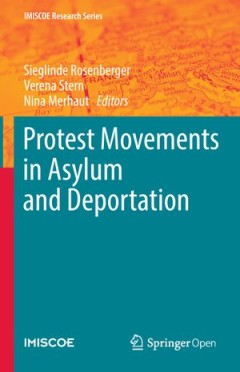
Protest Movements in Asylum and Deportation
Protest mobilization and outcome; Political participation; Emotions and social ties; Deportation nation; Refugees; Pro-migrant protest; Anti-migrant protest
- Edition
- -
- ISBN/ISSN
- 9783319746951
- Collation
- -
- Series Title
- -
- Call Number
- 320.17 MER p
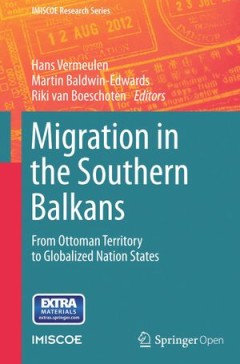
Migration in The Southern Balkans: From Ottoman Territory To Globalized Natio…
Migration; History, general; Cities, Countries, Regions; Demography
- Edition
- -
- ISBN/ISSN
- 9783319137186
- Collation
- -
- Series Title
- -
- Call Number
- 351.81 BOE m
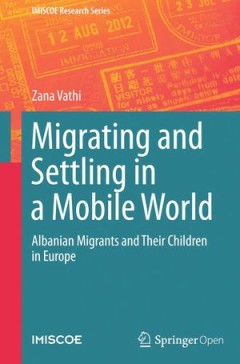
Migrating and Settling in a Mobile World: Albanian Migrants and Their Childre…
Migration; Social Structure, Social Inequality; Childhood, Adolescence and Society; Sociology, general
- Edition
- -
- ISBN/ISSN
- 9783319077697
- Collation
- -
- Series Title
- -
- Call Number
- 320.17 VAT m
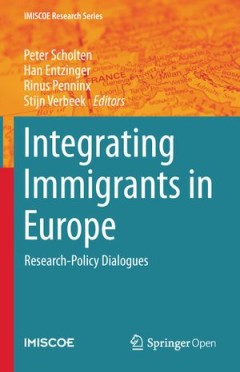
integrating Immigrants in Europe: Research-Policy Dialogues
Migration; Knowledge - Discourse; Public Policy
- Edition
- -
- ISBN/ISSN
- 9783319162553
- Collation
- -
- Series Title
- -
- Call Number
- 320.17 PEN i
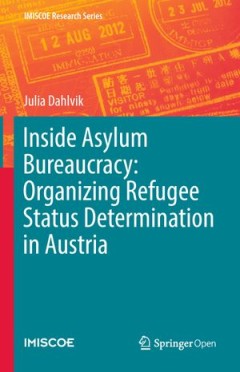
Inside Asylum Bureaucracy: Organizing Refugee Status Determination in Austria
Public administration of asylum applications in Europe; Determining refugee status in street-level bureaucracy; Individual-institution interaction; Institutional ethnography; Theory of social practices; Immigration in Europe
- Edition
- -
- ISBN/ISSN
- 9783319633053
- Collation
- -
- Series Title
- -
- Call Number
- 320.17 DAH i
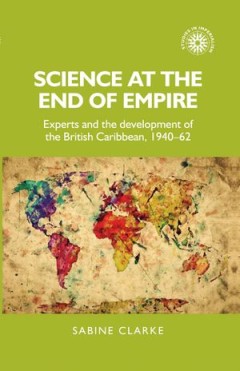
Science at the end of empire
This book produces a major rethinking of the history of development after 1940 through an exploration of Britain’s ambitions for industrialisation in its Caribbean colonies. Industrial development is a neglected topic in histories of the British Colonial Empire, and we know very little of plans for Britain’s Caribbean colonies in general in the late colonial period, despite the role played …
- Edition
- -
- ISBN/ISSN
- 9781526131409
- Collation
- -
- Series Title
- -
- Call Number
- -

Reinventing African Chieftaincy in the Age of AIDS, Gender, Governance, and D…
This collection of essays examines the relatively new, and frequently overlooked, political phenomenon in post-colonial Africa of chieftaincy “re-inventing” itself. The traditional authority of chiefs has been one of Africa’s missing voices who are now bringing new resources to the challenges that AIDS, gender, governance, and development pose to the peoples of Africa. Reinventing African…
- Edition
- -
- ISBN/ISSN
- 9781552385371
- Collation
- -
- Series Title
- -
- Call Number
- -
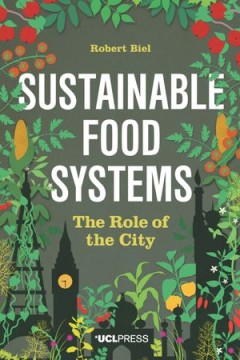
Sustainable Food Systems
This book, by a leading expert in urban agriculture, offers a genuine solution to today’s global food crisis. By contributing more to feeding themselves, cities can allow breathing space for the rural sector to convert to more organic sustainable approaches. Biel’s approach connects with current debates about agroecology and food sovereignty, asks key questions, and proposes lines of future…
- Edition
- -
- ISBN/ISSN
- 9781911307099
- Collation
- -
- Series Title
- -
- Call Number
- -
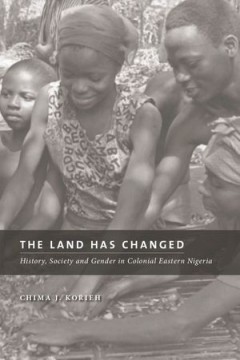
The Land Has Changed History, Society, and Gender in Colonial Nigeria
A century ago, agriculture was the dominant economic sector in much of Africa. By the 1990s, however, African farmers had declining incomes and were worse off, on average, than those who did not farm. Colonial policies, subsequent ‘top-down’ statism, and globalization are usually cited as primary causes of this long-term decline. In this unprecedented study of the Igbo region of southeaster…
- Edition
- -
- ISBN/ISSN
- 9781552385456
- Collation
- -
- Series Title
- -
- Call Number
- -
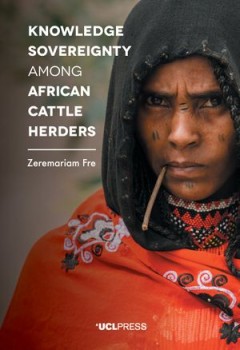
Knowledge Sovereignty Among African Cattle Herders
Beni-Amer cattle owners in the western part of the Horn of Africa are not only masters in cattle breeding, they are also knowledge sovereign, in terms of owning productive genes of cattle and the cognitive knowledge base crucial to sustainable development. The strong bonds between the Beni-Amer, their animals, and their environment constitute the basis of their ways of knowing, and much of thei…
- Edition
- -
- ISBN/ISSN
- 9781787353114
- Collation
- -
- Series Title
- -
- Call Number
- 320.17 FRE k
 Computer Science, Information & General Works
Computer Science, Information & General Works  Philosophy & Psychology
Philosophy & Psychology  Religion
Religion  Social Sciences
Social Sciences  Language
Language  Pure Science
Pure Science  Applied Sciences
Applied Sciences  Art & Recreation
Art & Recreation  Literature
Literature  History & Geography
History & Geography